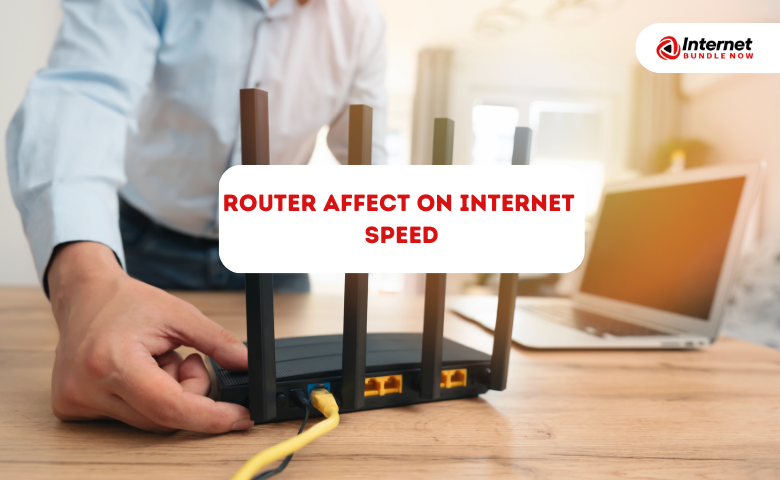- TV
How to Get Premium Channels with Your Cable TV Bundle?
Access to exclusive entertainment content is a priority for many viewers seeking a richer television experience. Premium chan...
Explore More
Routers are the silent orchestrators of our home networks. They take the internet signal from your ISP and distribute it to all your devices, from smartphones to smart TVs. Routers come in different types, including single-band, dual-band, and tri-band models, each offering varied levels of performance and connectivity options.
Single-band routers operate on the 2.4GHz frequency, providing broad coverage but often suffering from interference. Dual-band routers add a 5GHz frequency, offering faster speeds but shorter range. Tri-band routers take it a step further, incorporating an additional 5GHz band to manage multiple high-demand devices seamlessly.
Understanding these basics helps you make better decisions about which router type best fits your needs. A single-band router might suffice for basic tasks, but for streaming, gaming, or running a smart home, a dual-band or tri-band router is a better option.
Several factors can significantly impact how well your router performs. One of the most crucial is placement. Routers should be centrally located in your home to ensure even signal distribution. Avoid placing it near metal objects or other electronics that could cause interference.
Signal interference is another critical factor. Walls, floors, and other electronic devices can disrupt Wi-Fi signals. Using a dual-band or tri-band router can help mitigate some of these issues by providing additional channels.
Router age is also a vital consideration. Older routers may lack the advanced features and technologies found in newer models, such as MU-MIMO (Multi-User, Multiple Input, Multiple Output) and Beamforming, which enhance performance and range.
Internet speed is often misunderstood. It’s measured in megabits per second (Mbps) and includes both upload and download speeds. Download speed determines how quickly data is pulled from the Internet to your device, while upload speed measures how fast data is sent from your device to the Internet.
Latency, another crucial metric, refers to the delay before data starts to transfer once the request has been made. Lower latency is essential for activities like online gaming and video conferencing.
Tools like Ookla’s Speedtest can help you measure your internet speed and understand whether you’re getting the performance you’re paying for.
Maximizing your router’s performance involves more than just the initial setup. Start by ensuring your router’s firmware is up to date. Manufacturers frequently release updates that can improve performance and security.
Next, consider the placement of your router. Aim for a central location, elevated off the floor and free from obstructions. If you live in a large home, consider investing in a mesh Wi-Fi system to extend coverage.
Many modern routers come with Quality of Service (QoS) settings, allowing you to prioritize bandwidth for specific devices or activities. For example, you can prioritize video streaming over file downloads to ensure smooth playback.
Your ISP plays a significant role in your internet speed and overall experience. The type of internet service you have whether it’s DSL, cable, fiber-optic, or satellite—can affect speed and reliability. Fiber-optic connections generally offer the fastest speeds and lowest latency.
Choosing the right internet package is equally important. While a high-speed package is essential, it’s crucial to ensure your router can handle those speeds. Internet Bundle Now, for example, offers various high-speed plans designed to meet different needs, from casual browsing to intensive gaming and streaming.
Choosing the right router isn’t just about meeting today’s needs; it’s about future-proofing your home network. Look for routers that support the latest Wi-Fi standards, such as Wi-Fi 6, which offers improved speed, capacity, and efficiency. Wi-Fi 6E, the newest iteration, extends these benefits to the 6GHz band, reducing congestion and enhancing performance.
Consider emerging technologies like AI-driven network management, which optimizes settings based on real-time usage patterns. These features can help ensure your network remains robust and efficient as your household’s needs evolve.
Understanding how your router affects internet speed is crucial for optimizing your home network. From choosing the right router and placing it correctly to updating settings and staying informed about new technologies, there are several ways to enhance your internet experience.
Take the time to assess your current setup. If necessary, consider upgrading your router or adjusting its settings to improve performance. And don’t hesitate to contact Internet Bundle Now for high-speed internet plans tailored to meet your needs.
Latest insights, tips, and updates from our experts.
George
How Does a Router Affect Internet Speed?